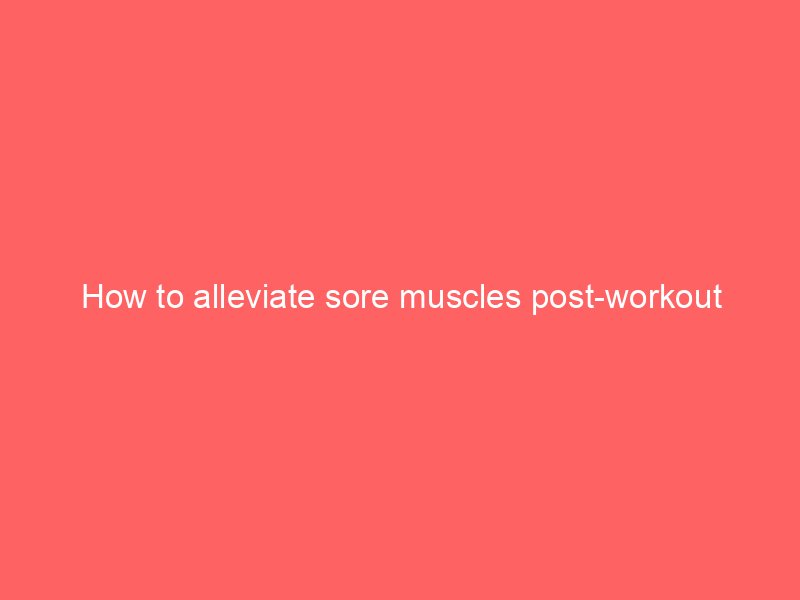Understanding Muscle Soreness After Exercise
Muscle soreness after a workout, often referred to as delayed onset muscle soreness (DOMS), is a common occurrence for both amateur fitness enthusiasts and seasoned athletes. Typically peaking 24-72 hours post-exercise, DOMS is characterized by stiffness, tenderness, and a reduction in muscle strength. This condition is primarily triggered by eccentric muscle contractions, where the muscle lengthens under tension. Such contractions create microscopic tears in muscle fibers, leading to inflammation and the sensation of soreness. Understanding the underlying causes of muscle soreness is crucial for effectively managing and alleviating discomfort. Knowledge about DOMS can help fitness enthusiasts plan their training sessions more efficiently and adopt practices that minimize soreness without compromising workout intensity.
Effective Tools for Muscle Recovery
Several tools and techniques are available to assist in recovering from muscle soreness. Foam rollers, for instance, are popular for their ability to release muscle tightness through self-myofascial release, enhancing blood flow and speeding up recovery. Massage guns have also gained prominence for their deep-tissue massage capabilities, which help in reducing muscle stiffness and promoting faster healing. Additionally, cryotherapy and contrast baths, which alternate between hot and cold water, can reduce inflammation and alleviate muscle pain. Compression garments can also support recovery by improving blood circulation and reducing muscle oscillations. Employing these tools can significantly decrease recovery time and enhance overall workout performance.
The Role of Nutrition in Muscle Recovery
Nutrition plays a critical role in muscle recovery and alleviating soreness. Consuming a balanced diet rich in protein and essential nutrients is vital for repairing muscle fibers damaged during exercise. Protein sources such as lean meats, eggs, and plant-based alternatives like legumes and tofu provide the amino acids necessary for muscle repair. Carbohydrates replenish glycogen stores, essential for energy recovery, while fats contribute to overall cellular repair. Additionally, incorporating anti-inflammatory foods such as berries, leafy greens, nuts, and seeds can help reduce muscle inflammation. Proper hydration is equally important, as water aids in the transportation of essential nutrients to muscle tissues. A well-rounded nutritional approach can significantly reduce muscle soreness and quicken the recovery process.
Importance of Stretching and Proper Warm-Up
Stretching and warming up before engaging in any intense physical activity are crucial steps in preventing and alleviating post-workout muscle soreness. Dynamic stretching during the warm-up phase can increase muscle elasticity and joint mobility, preparing the body for physical exertion. Post-exercise static stretching helps in gradually lengthening the muscles, reducing stiffness and promoting flexibility. Yoga and Pilates are excellent practices for incorporating stretching and enhancing muscle recovery. These exercises focus on gentle movements and deep breathing, which can improve blood flow and alleviate tension in sore muscles. Making stretching a routine part of your workout regimen can significantly reduce muscle soreness and enhance overall physical performance.
Importance of Rest and Sleep
Rest and sleep are vital components in the recovery process following a workout. During sleep, the body undergoes repair and growth processes that are essential for muscle recovery. High-quality sleep promotes the release of growth hormones, which aid in the repair of muscle tissues and overall recovery. Ensuring an adequate amount of rest between workouts is equally important to give muscles the time they need to heal and rebuild. Overtraining without allowing sufficient recovery time can lead to chronic muscle soreness, increased risk of injuries, and decreased performance. Listening to your body and incorporating rest days into your fitness regimen can improve muscle recovery, alleviate soreness, and enhance long-term fitness goals.









